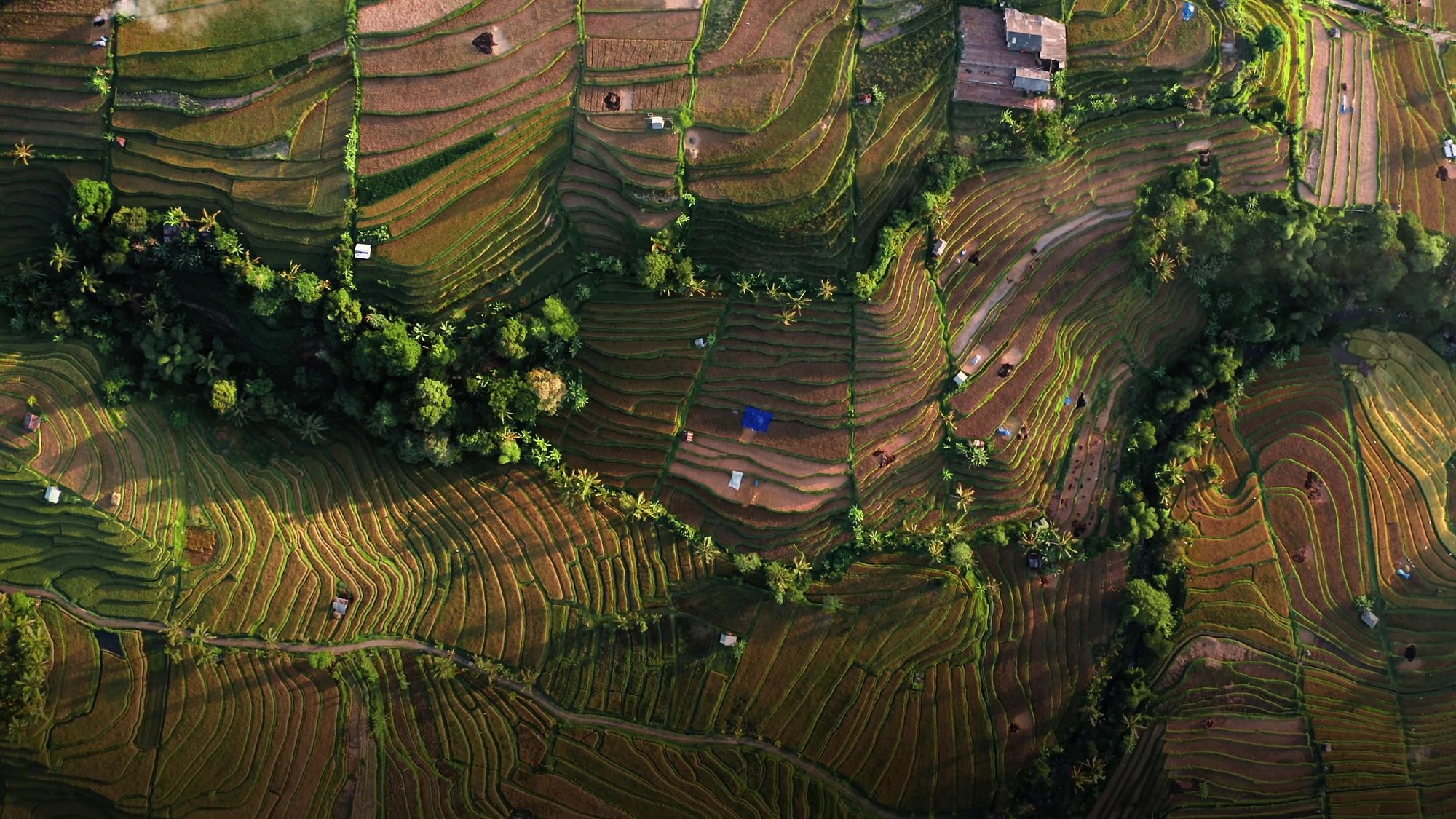Exploring Sustainable Agriculture: Team Visit to Subak Bena

The subak water irrigation system is of grave significance to Balinese society. This centuries-old integration process is central to religious and spiritual life in the country, and beyond a tool for rice cultivation. According to UNESCO, subak embodies the concept of Tri Hita Karana, marrying the spirit world, human life and nature. QUANTUM TEMPLE paid a visit to the town of Subak Bena, in the Tabanan regency, to connect with a vibrant community that’s sustained by this time-honored system. These farmers are pioneers in our innovative Impact Project, which is aimed at enhancing crop yields while reducing environmental impact.
Understanding Subak: Bali's Agricultural Heritage
Subak is a lifeline for Balinese rice farmers. This cooperative irrigation system functions as an organization and an irrigation cooperative, orchestrating water distribution for agricultural purposes. Each subak comprises multiple rice-farming communities within a specific region, governed by a hierarchy of farmers and priests tasked with system management and maintenance.

Harvesting Traditions: A Day in the Rice Fields with Balinese Farmers
We relished the opportunity to get involved with hands-on experiences, rolling up our sleeves to join the farmers in the rice field. Guided by project leader, Pak Alit, we began by reaping (cutting down the straw with a sharp hand sickle), before threshing (hitting the straw against a rack so the rice separates). Although labor intensive under the hot Bali sun, the rhythmic swaying of the rice stalks and the camaraderie among the farmers created an atmosphere of unity and shared purpose. It stressed the importance of preserving Bali's cultural and environmental heritage through regenerative efforts.
Our visit to Subak Bena brought us face-to-face with the farmers at harvest time, six months on from the first trial of the Subak Impact Project began. This adaptive irrigation system project aims to revolutionize rice cultivation practices with the goal of exploring whether a new regime can reduce greenhouse gas emissions while boosting crop yields.
Agriculture Meets Environmental Responsibility: The Adaptive Irrigation System
Adaptive intermittent flooding, an innovative approach, holds immense promise. It both optimizes crop yield and aligns with environmentally friendly practices. This method cuts water usage and greenhouse gas emissions, fosters soil health, and bolsters fertilizer retention to fortify rice crops against diseases and pests, and extreme weather conditions. By implementing the water-saving technique of Alternate Wetting and Drying (AWD), these farmers not only contribute to global environmental efforts but also reap the rewards of bountiful harvests.
.png)
Empowering Farmers, Nourishing Communities
Our conversations with Subak Bena's farmers revealed a host of opportunities. For one, the five farmers we met that had harvested their land, reported increased production of up to 35%. Our discussions also extended beyond immediate gains, as we explored the potential of expanding this eco-friendly farming project to other Subaks.
Our visit to Subak Bena underscored how farmers in the region recognise the need to shift to sustainable ways of working to maintain Bali's agricultural legacy. Through adopting modern environmental practices, the Balinese farmers we met in Subak Bena are cultivating prosperous and promising futures for their community and the planet.
Our time in the fields with the Subak farmers left a long-lasting impression. The experience demonstrated the leap from theory to practice, offering a first-hand look at the tangible results of sustainable farming efforts, while emphasizing the importance of preserving Bali's cultural and environmental heritage through regenerative efforts.
Read the results of this Impact Project in our report here.